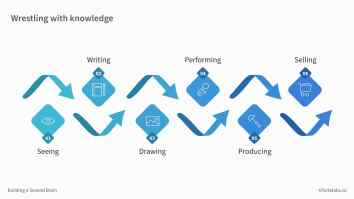
Just-In-Time PM #15: Multithreading
In Part 14 we looked at the potential for massively increasing our bandwidth by creating personal productivity networks These networks are made up of packets of work that move between nodes where some kind of intelligence is applied whether human or software based
But what does it look like to operate such a











